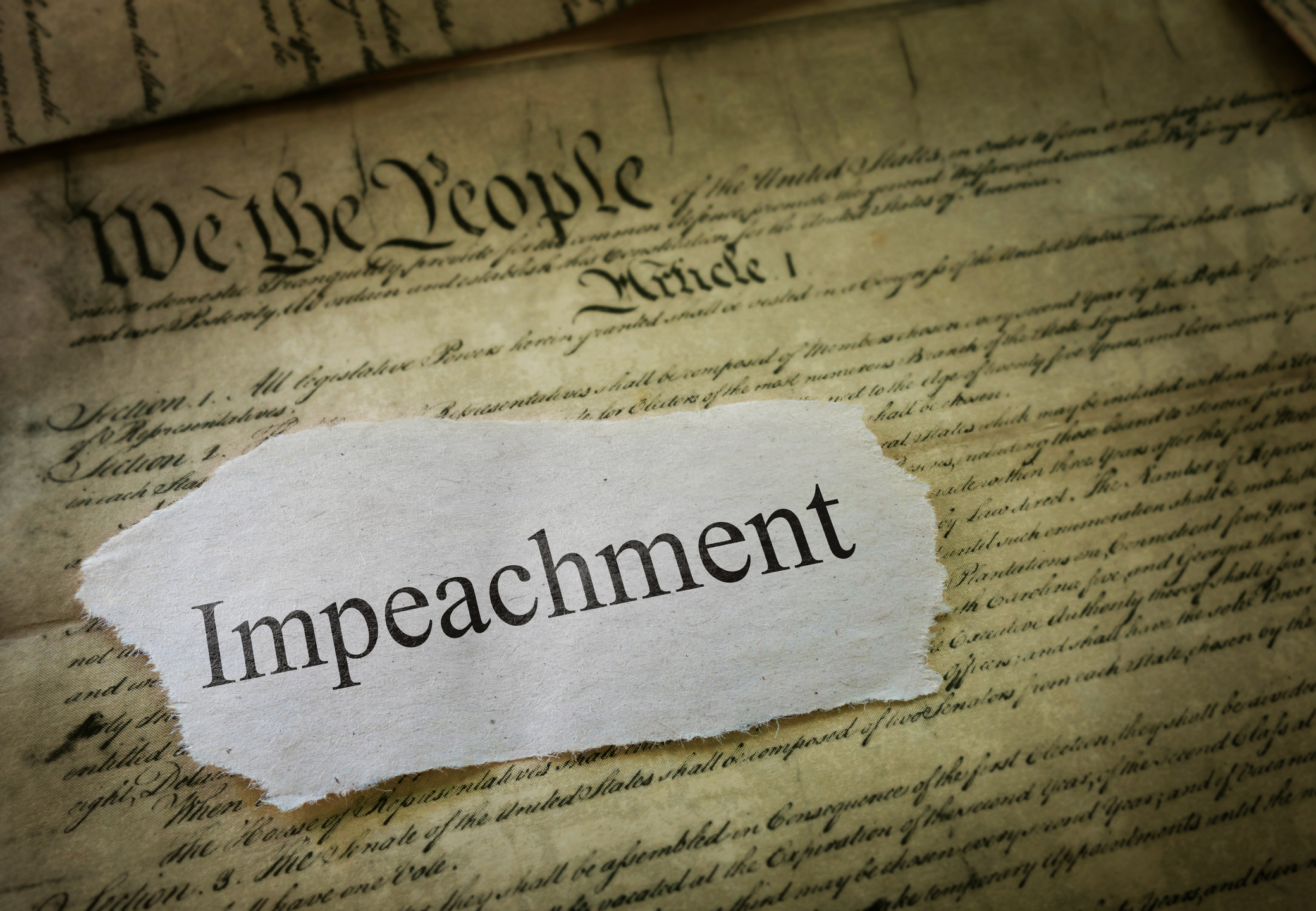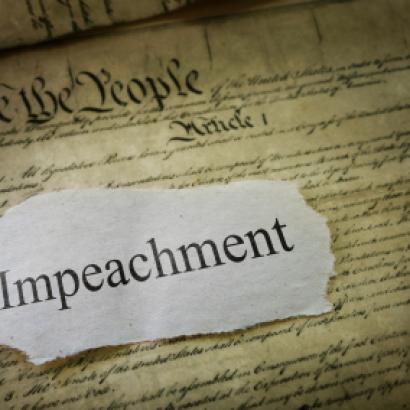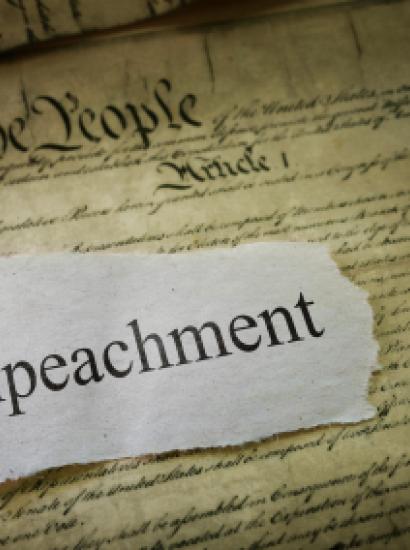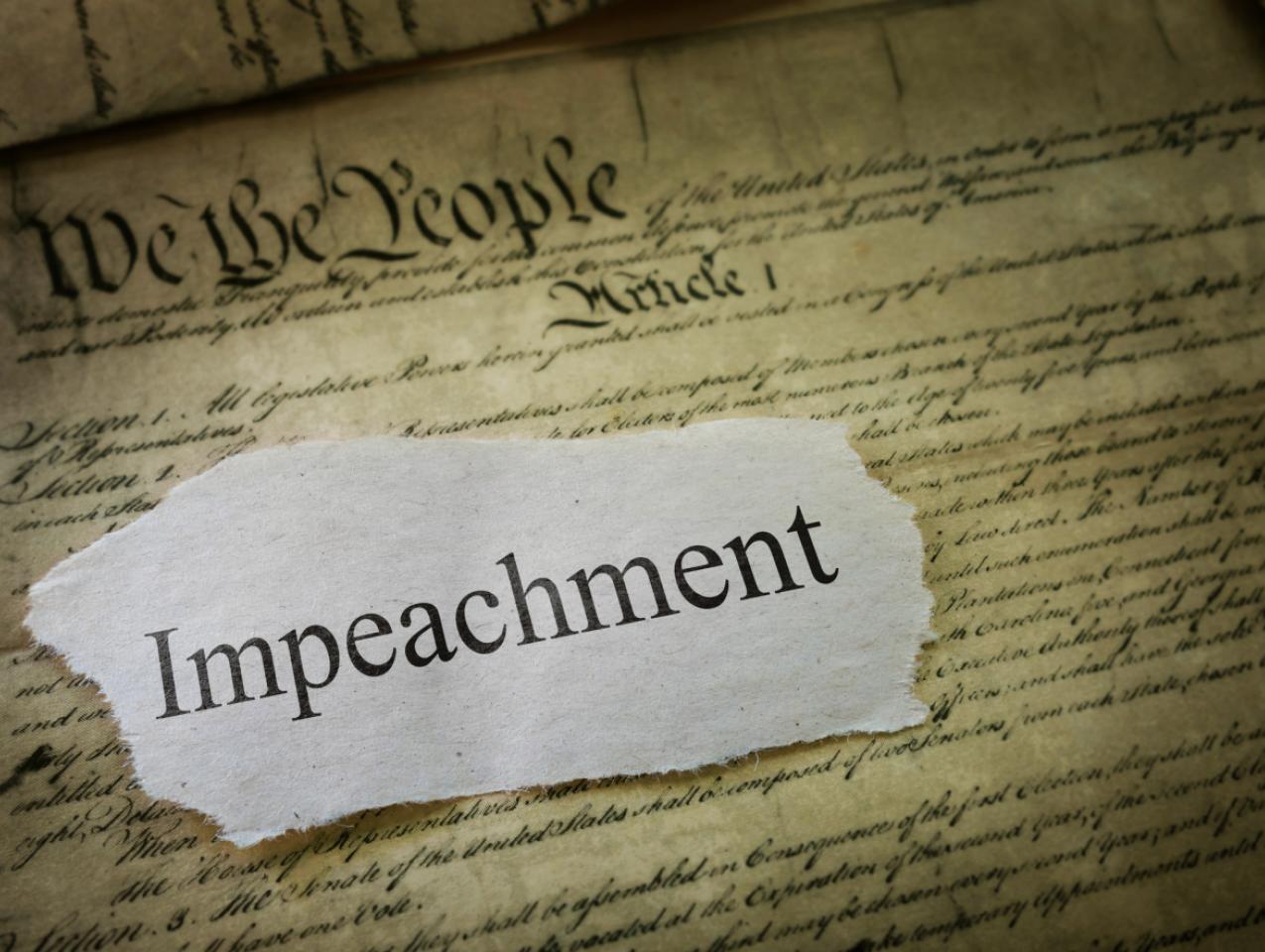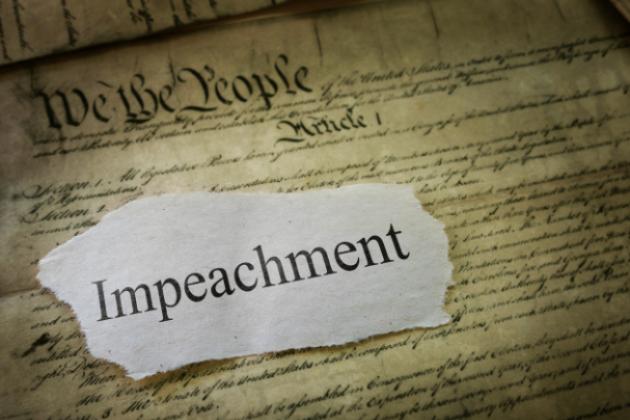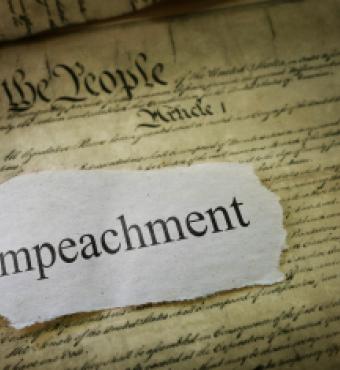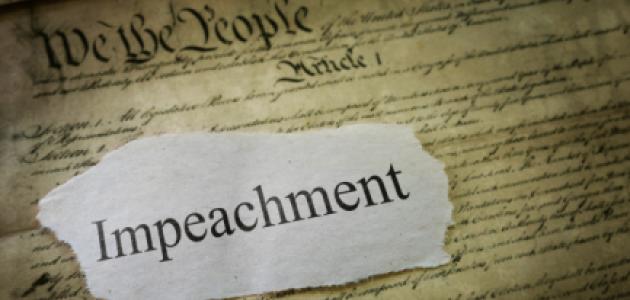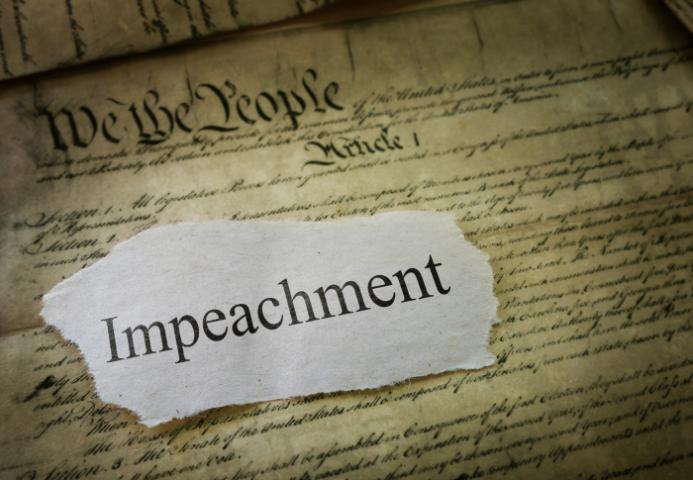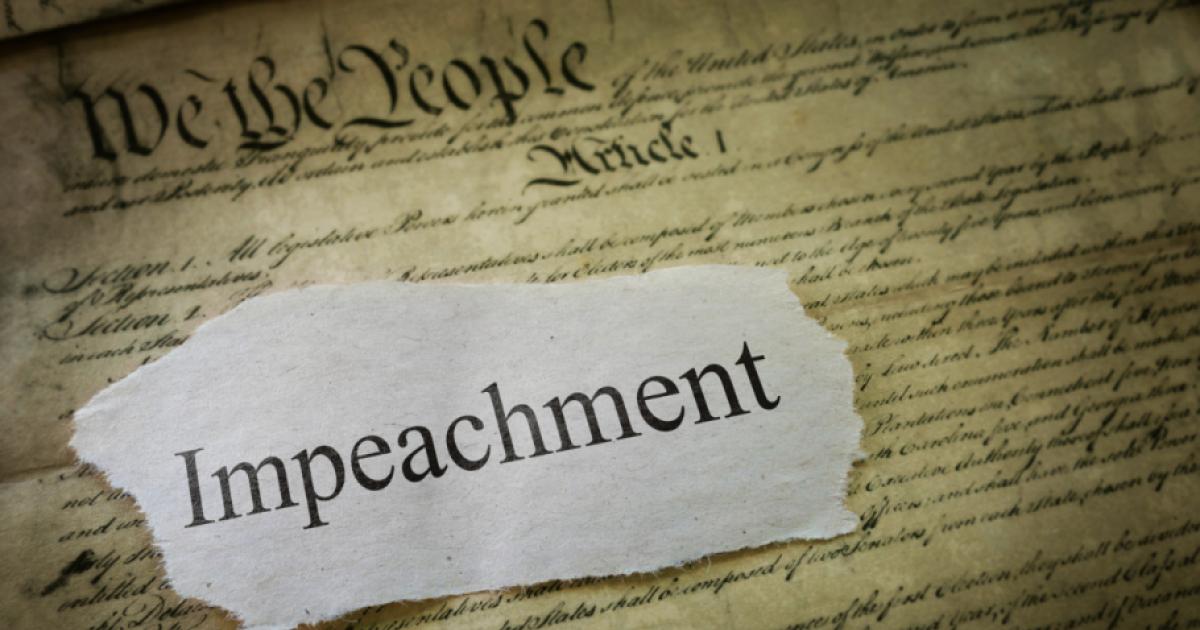- Law & Policy
- Politics, Institutions, and Public Opinion
The United States Senate has voted, along virtually strict party lines, not to call witnesses on the two key charges in the impeachment trial of the President: that President Trump abused his power by withholding military aid to Ukraine, and that he also obstructed Congress by refusing to participate in the House’s impeachment investigation. Given this outcome, the acquittal of the President is virtually assured to come this Wednesday.
The Senate’s decision rests on this narrow but controversial definitional question: What is an impeachable offense? This past December, a “Letter to Congress” signed by over 800 constitutional law professors defended the legal position that “conduct need not be criminal to be impeachable. The standard here is constitutional; it does not depend on what Congress has chosen to criminalize. Impeach is a remedy for grave abuses of the public trust.”
More recently, a similar legal position was taken by one of Trump’s more eloquent defenders, Professor Jonathan Turley of the George Washington University Law School. He attacked Harvard’s Emeritus Professor Alan Dershowitz for claiming impeachment of the President requires the commission of some criminal act, something that was not alleged in the House’s impeachment articles. But unlike the Professors’ Letter to Congress, Turley sought to split the difference: “I do not believe that the House managers have sufficiently rebutted the defense of the president and specifically established the necessary intent to hold the Ukrainian aid for solely political purposes (as opposed to a policy concern of corruption or sharing costs with allies).” But, he continued, “I still believe that [Dershowitz] is fundamentally wrong in maintaining that impeachable offenses must be based on actual crimes or ‘crime-like’ conduct.”
Unfortunately, Turley’s challenge to Dershowitz goes too far afield by claiming that, unless serious breaches of the public trust were impeachable events, a perverse President could give Alaska back to the Russians or Delaware back to the Dutch. Ironically, impeachment could not undo so blatant a transfer of American territory, which is why the Constitution contains other protections for state sovereignty, including Article IV, Section 4: “The United States shall guarantee to every State in this Union a Republican Form of Government, and shall protect each of them against Invasion.” Surely the President, acting alone, could be enjoined from turning any state over to a foreign government.
Needed in the debate, therefore, are not broad pronouncements or denunciations, but a close analysis of the constitutional text, its historical context, and the background principles of criminal law. The key definitional provision of the Constitution is found in Article II, Section 4: “The President, Vice President and all civil Officers of the United States, shall be removed from Office on Impeachment for, and Conviction of, Treason, Bribery, or other high Crimes and Misdemeanors.” It should be clear from the term “other” following treason and bribery that all of the actions under this section are criminal actions. Article III, Section 3 states: “Treason against the United States, shall consist only in levying War against them, or in adhering to their Enemies, giving them Aid and Comfort.”
One clear implication from the professors’ letter is that, just as Congress cannot narrow the definition of an impeachable offense, so, too, it cannot give treason a more capacious definition. The Constitution contains no definition of bribery, but Samuel Johnson’s A Dictionary of the English Language, originally published in 1755, defines it as “The crime of taking rewards for bad practices.” The more comprehensive Merriam-Webster definition speaks of: “money or favor given or promised in order to influence the judgment or conduct of a person in a position of trust.” But that definition too cannot be expanded by congressional fiat. What is left, therefore, is the last phrase, where the use of the term “high” (which covers both crimes and misdemeanors) clearly cabins impeachable offenses to serious crimes, but again does not allow Congress to make up new definitions of crime in order to expand its powers.
Dershowitz’s inclusion of “crime-like” in his definition of impeachable offenses represents a standard legal technique of trying to find cases sufficiently analogous to those which are contained in the Constitution, so as to avoid any egregious circumvention of the basic principle. Thus a prohibition that Congress may not “take” private property is properly read to prohibit Congress from flooding someone else’s land without taking title thereto, as in Pumpelly v. Green Bay Co. (1872).
The law professors’ letter seeks to find safe haven in this principle by noting that at “the Constitutional Convention, George Mason described impeachable offenses as “attempts to subvert the constitution.” But the full context reveals a different meaning of this carefully clipped passage: “Attempts to subvert the constitution may not be treason as above defined—As bills of attainder which saved the British Constitution are forbidden, it is the more necessary to extend the power of impeachments. He movd. to add after ‘bribery’ or ‘maladministration.’” To which James Madison replied, “So vague a term will be equivalent to tenure during pleasure of the Senate,” prompting the following response: “Col. Mason withdrew ‘maladministration’ & substitutes ‘other high crimes & misdemeanors’ (agst. The State).”
The correct reading of this passage is not that it makes noncriminal conduct impeachable, but that it ensures that the list of impeachable crimes is expanded beyond treason to cover high crimes and misdemeanors. Madison’s note points to exactly the opposite conclusion from that reached in the Letter to Congress: there is no independent, noncriminal, offense of the grave breach of public trust.
Nor does the position change by looking at the key passages on impeachment from Federalist No. 65, written by Alexander Hamilton. Federalist No. 65 is an odd citation for the law professors’ letter to Congress because it does not mention, let alone explain, the phrase “treason, bribery, or other high crimes and misdemeanor.” Instead, its chief concerns, also expressed in Federalist No 66, were whether and why the Senate should hold trials of impeachment, as opposed to, say, the Supreme Court. Hamilton wrote:
The subjects of its jurisdiction are those offenses which proceed from the misconduct of public men, or, in other words, from the abuse or violation of some public trust. They are of a nature which may with peculiar propriety be denominated POLITICAL, as they relate chiefly to injuries done immediately to the society itself. . . .
The punishment which may be the consequence of conviction upon impeachment, is not to terminate the chastisement of the offender. After having been sentenced to a perpetual ostracism from the esteem and confidence, and honors and emoluments of his country, he will still be liable to prosecution and punishment in the ordinary course of law.
In this passage, Hamilton does not adopt a broad definition of what counts as “an abuse or violation of the public trust.” The use of the word “offenses” refers to the subset of criminal offenses on par with treason and bribery, which are, as Madison observed, offenses against the state, unlike theft and murder, which are only offenses against private persons in their private capacities. Only criminal “offenses”—not noncriminal behaviors—are subject to “prosecution and punishment in the ordinary course of law.”
This limited interpretation tracks on the fundamental maxim of the criminal law—“nulla poena sine lege,” or “no punishment without [enacted] law.” That principle has been long recognized as a fundamental constituent of the rule of law because it prevents the creation of ad hoc crimes as the basis for new punishments. Article II, Section 4 gives voice to these concerns.
Recall Turley’s point that the complex negotiations over aid to Ukraine raised many issues of military and foreign policy. Yet nothing in the famous telephone conversation of July 25, 2019 between Trump and Ukrainian President Volodymyr Zelensky even hints at a criminal offense. Only by using negative inferences about Trump’s character could one impute dubious motives to the President on the basis of that recorded conversation in front of multiple parties, both American and Ukrainian. That step should never be taken, since a criminal trial before the Senate should require proof of guilt beyond a reasonable doubt.
Fidelity to the constitutional text avoids having to make delicate judgments about mixed-motive cases. Our constitutional law professors find (without elaboration) “overwhelming evidence that President Trump betrayed his oath of office,” without ever asking whether the slowdown in aid could have been justified by legitimate concerns with corruption or with sending lethal military aid to Ukraine. Adding witnesses would introduce a knotty set of questions for those who might testify: is the evidence relevant, hearsay, classified, subject to executive privilege, or even credible?
These tortuous mixed-motive cases can only be avoided by insisting on proof of a criminal violation narrowly defined. Impeachment is far too grave a remedy to invoke on the basis of a shaky case resting on highly partisan assumptions. In this case, it is not the Republicans who have deviated from the constitutional standards and historical practices; it is the Democrats who, without a single exception in either the House or Senate, pushed their partisan case for impeachment well beyond acceptable limits.
Commentators like Gerald Seib of the news pages of the Wall Street Journal fear that the anticipated acquittal of Trump on February 5 will lead to an impermissible aggrandizement of power by the President that undermines our constitutional scheme of separation of powers. Sadly, as documented by columnist Kimberley Strassel, also of the Wall Street Journal, it is the Democrats in the House and their dubious practices leading up to the impeachment that represents a dangerous abuse of power. The quicker these impeachment hearings fade into constitutional history, the better.







